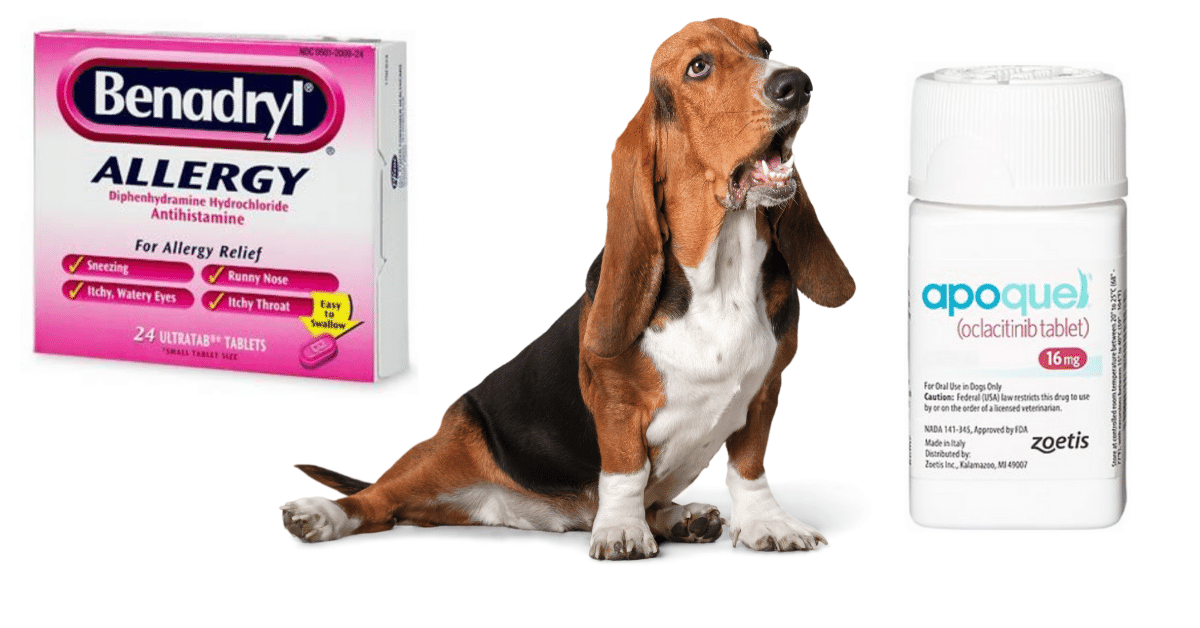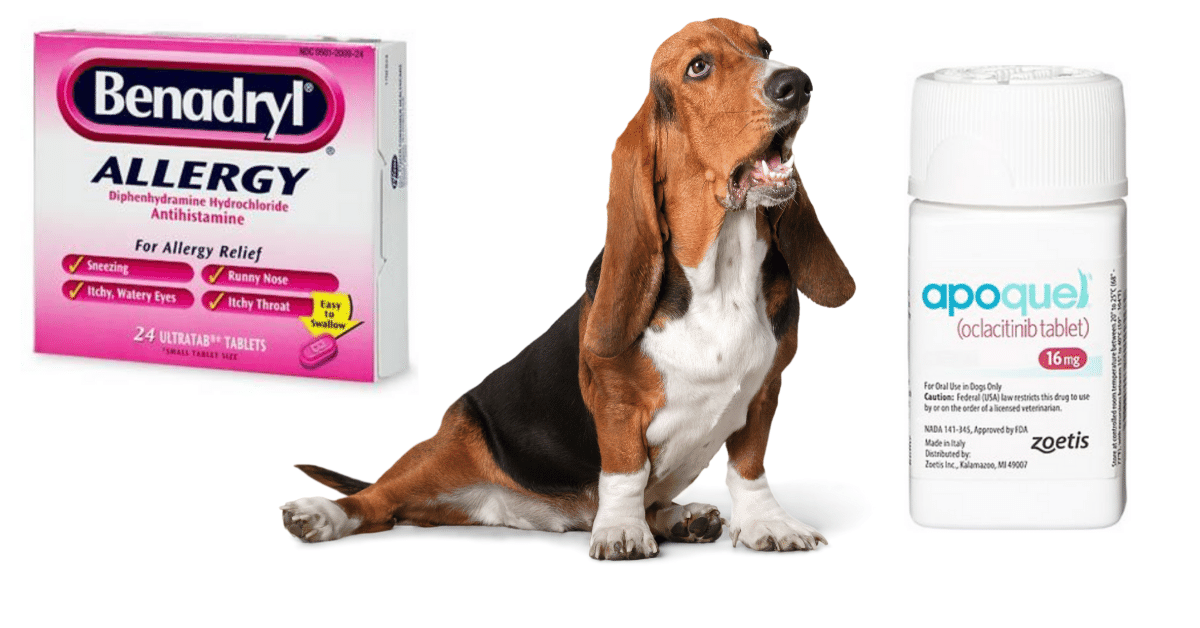Can I Give My Dog Over-the-Counter Allergy Medicine?
If you’re one of the millions of dog owners who struggle with their furry friend’s seasonal allergies, you might be tempted to reach for the over-the-counter (OTC) allergy meds that you use yourself. But before you do, take a step back and ask yourself: is it safe to give your dog OTC allergy medicine?
As much as we want to help our pets feel better, giving them human medication without proper guidance can be risky business. In this post, we’ll dive into the pros and cons of using OTC allergy meds on dogs, and explore the best ways to alleviate your pup’s seasonal sniffles.
The Risks of Giving Your Dog Human Allergy Medicine
While it might seem like a quick fix to give your dog an antihistamine or decongestant, these medications can have serious consequences for canine health. For one, dogs metabolize medication differently than humans do, which means the dosage and timing of administration can be tricky to get right.
Additionally, human allergy meds are designed to treat human symptoms – not dog-specific ones. This can lead to unintended side effects, such as increased appetite or hyperactivity in your pup. And let’s not forget the potential for overdose or interaction with other medications your dog is taking.
In our next section, we’ll explore some alternative approaches to treating your dog’s seasonal allergies, and offer expert advice on when it might be safe to give OTC meds – if at all. But first, let’s take a closer look at the specific risks involved in giving human allergy medicine to dogs…

The Risks of Giving Your Dog Human Allergy Medicine
When it comes to giving your dog human allergy medicine, the risks far outweigh any potential benefits. One of the most significant concerns is that dogs can experience serious adverse reactions, including:
- Vestibular syndrome: This condition causes abnormal movement and coordination in dogs, which can be distressing for them.
- Hyperactivity: Human antihistamines and decongestants can stimulate your dog’s nervous system, leading to excessive energy and hyperactive behavior.
- Gastrointestinal upset: These medications can cause stomach irritation, vomiting, or diarrhea in dogs.
Another crucial consideration is the potential for overdose. Human allergy medicine comes in much stronger doses than what’s suitable for dogs, so even a single dose can be harmful if not carefully measured and monitored.
The risk of interaction with other medications your dog may be taking is also significant. For example, combining human allergy medicine with certain heart medications or blood thinners can lead to serious health complications.
It’s essential to remember that dogs have a unique physiology that requires careful consideration when it comes to medication administration. The consequences of giving human allergy medicine to your dog without proper guidance can be severe and even life-threatening.
Avoiding the Risks: What You Can Do Instead
So, what’s a responsible pet owner to do? Fortunately, there are many effective ways to alleviate your dog’s seasonal allergies without putting their health at risk. In our next section, we’ll explore some of these alternatives and provide expert advice on when it might be safe to give OTC meds – if at all.
Read on to learn more about the best ways to soothe your pup’s sniffles and keep them happy and healthy all year round!
Expert Consultation for Your Furry Friend
Get expert advice on how to take care of your dog, from allergy medication to nutrition and training.
Start chatCan I Give My Dog Over-the-Counter Allergy Medicine?
If you’re one of the millions of dog owners who struggle with their furry friend’s seasonal allergies, you might be tempted to reach for the over-the-counter (OTC) allergy meds that you use yourself. But before you do, take a step back and ask yourself: is it safe to give your dog OTC allergy medicine?
As much as we want to help our pets feel better, giving them human medication without proper guidance can be risky business. In this post, we’ll dive into the pros and cons of using OTC allergy meds on dogs, and explore the best ways to alleviate your pup’s seasonal sniffles.
The Risks of Giving Your Dog Human Allergy Medicine
While it might seem like a quick fix to give your dog an antihistamine or decongestant, these medications can have serious consequences for canine health. For one, dogs metabolize medication differently than humans do, which means the dosage and timing of administration can be tricky to get right.
Additionally, human allergy meds are designed to treat human symptoms – not dog-specific ones. This can lead to unintended side effects, such as increased appetite or hyperactivity in your pup. And let’s not forget the potential for overdose or interaction with other medications your dog is taking.
Alternative Approaches to Treating Seasonal Allergies in Dogs
If you’re looking for a safer and more effective way to treat your dog’s seasonal allergies, consider these alternative approaches:
- Flea and tick preventatives: Many flea and tick preventatives also offer relief from environmental allergens.
- Allergy shots: If your dog’s allergies are severe, consult with a veterinarian about allergy shot therapy.
- Natural supplements: Omega-3 fatty acids, quercetin, and other natural supplements can help alleviate symptoms without the risks associated with human medications.
When Can You Give Your Dog OTC Allergy Medicine?
In rare cases, a veterinarian may recommend using an OTC antihistamine or decongestant specifically designed for dogs. However, this should only be done under the guidance of a qualified veterinarian, as they can help determine the proper dosage and ensure your dog’s safety.
Conclusion
In conclusion, while it may seem like an easy solution to give your dog human OTC allergy medicine, the risks far outweigh any potential benefits. Instead, explore alternative approaches that are specifically designed for canine health. With patience, persistence, and expert guidance, you can help your pup feel better without putting their well-being at risk.
Remember, it’s always best to consult with a veterinarian before trying any new treatments or medications on your dog. They can provide personalized advice based on your pet’s unique needs and health status.
Expertly handling 5e crossbows a hand crossbow experience: Unleash your inner adventurer and discover the thrill of using a hand crossbow in the world of Dungeons & Dragons. Get expert tips and tricks to master this ancient weapon. [Read More](https://deltaconnect.info/expertly-handling-5e-crossbows-a-hand-crossbow-experience/)
Can hydrogen peroxide make an ear infection worse: Got an ear infection? Don’t try to treat it with hydrogen peroxide! Learn why this common remedy might actually do more harm than good. [Read More](https://deltaconnect.info/can-hydrogen-peroxide-make-an-ear-infection-worse-2/)



